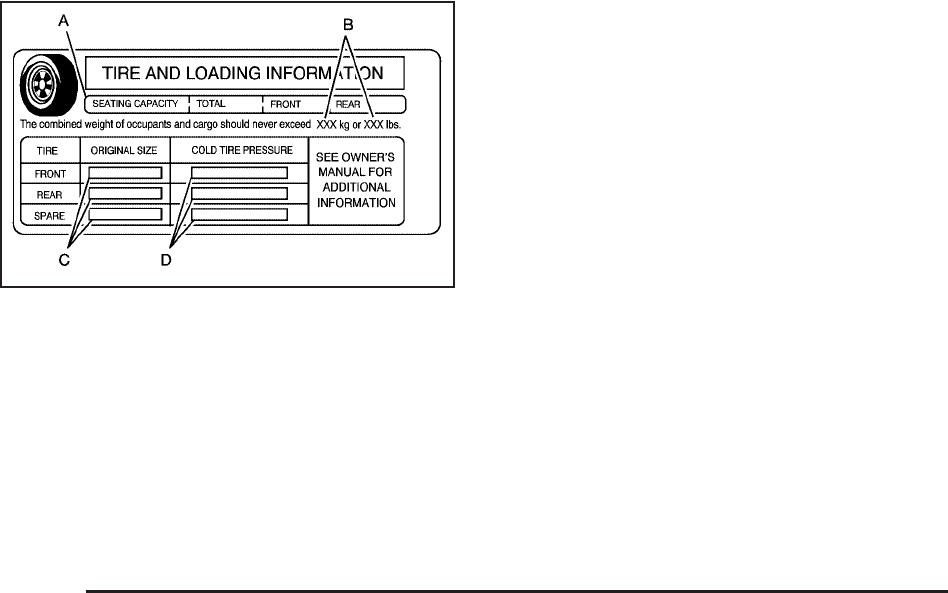
Tire and Loading Information Label
A vehicle specific Tire and Loading Information
label is attached to the vehicle’s center pillar
(B-pillar). With the driver’s door open, you will find
the label attached below the door lock post (striker).
The tire and loading information label lists the
number of occupant seating positions (A), and the
maximum vehicle capacity weight (B) in kilograms
and pounds. The vehicle capacity weight includes
the weight of all occupants, cargo, and all
nonfactory-installed options.
The Tire and Loading Information label also lists the
tire size of the original equipment tires (C) and the
recommended cold tire inflation pressures (D). For
more information on tires and inflation, see Tires on
page 382 and Inflation - Tire Pressure on page 390.
There is also important loading information on the
Certification/Tire label. It tells you the Gross Vehicle
Weight Rating (GVWR) and the Gross Axle Weight
Rating (GAWR) for the front and rear axles. See
“Certification/Tire Label” later in this section.
Steps for Determining Correct Load Limit
1. Locate the statement “The combined weight of
occupants and cargo should never exceed
XXX kg or XXX lbs” on your vehicle’s placard.
2. Determine the combined weight of the driver
and passengers that will be riding in your
vehicle.
3. Subtract the combined weight of the driver
and passengers from XXX kg or XXX lbs.
Label Example
316


















